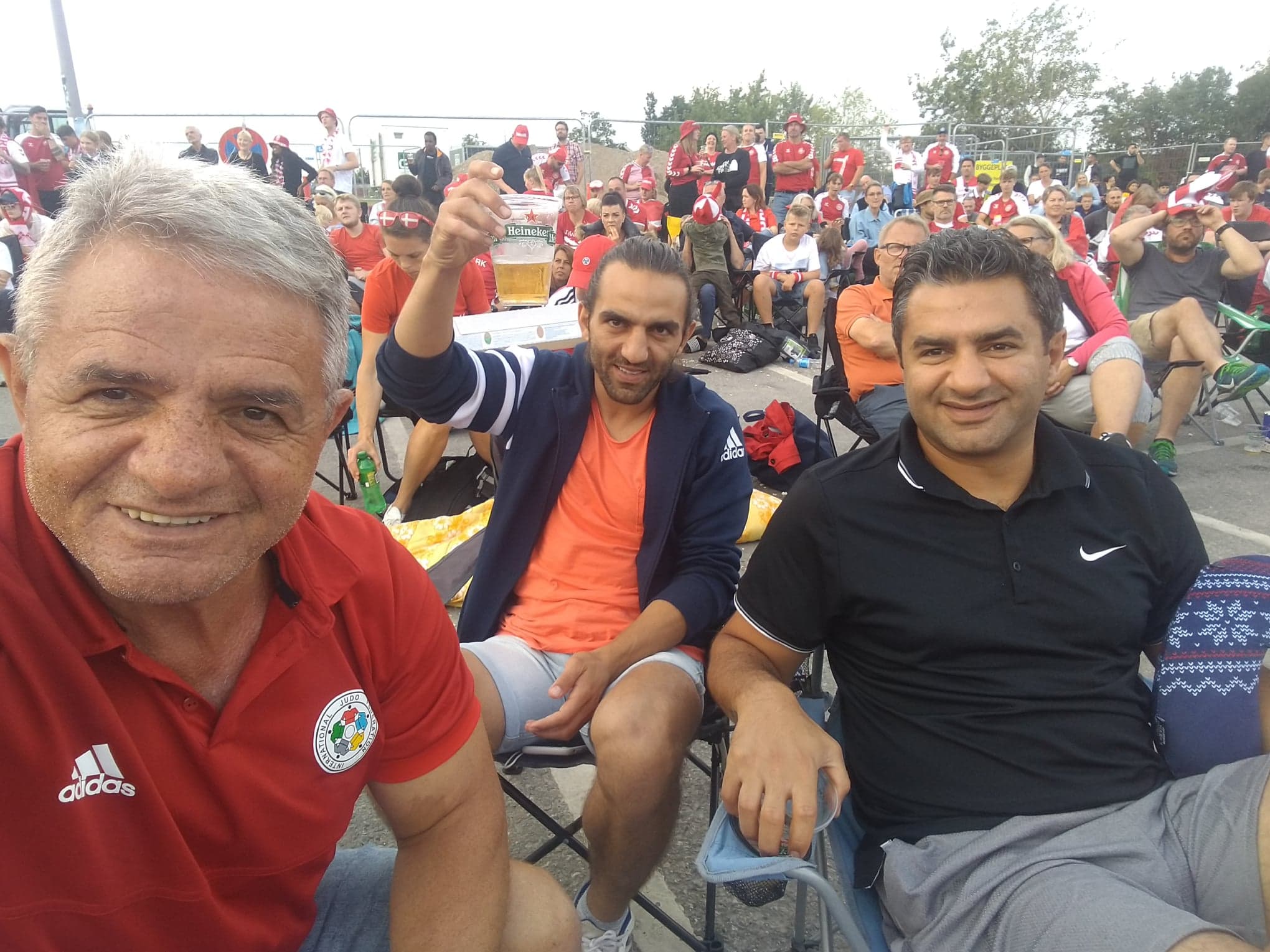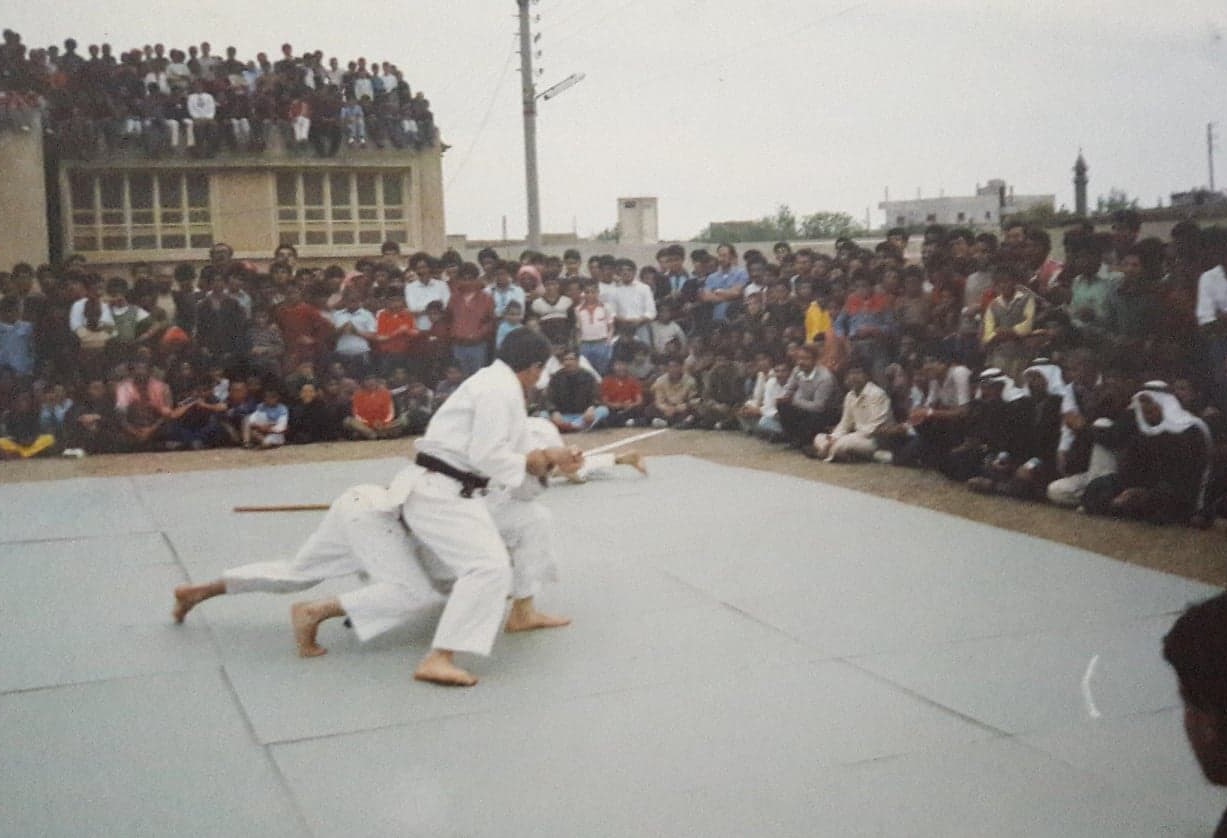Home and belonging

“Syria is the blood that runs in my veins. To me, my country is my family, my neighbors, my relatives. I lived most of my life in Syria and my personal history takes place there. I have most of my experiences – good and bad – in Syria“, Radwan explains to me, when I ask him what home means to him.
It is hard for me to imagine what it feels like to be forced to leave your home. Radwan had to leave his house, his neighbors, his relatives, his city, his country. When he describes his country, he does it with joy and sadness, because Syria is not the same anymore:
“I had all I wanted in Syria, but the Syrian president Assad destroyed our dreams. He destroyed the country, houses, buildings, and people. He destroyed our dream to stay safe in Syria and to have a good life. He removed the smiles of the people of Syria.”
Radwan describes his endless love for his country and he wishes he could go back, but the home he once knew is not there anymore. He has nothing to go back to and it would be very dangerous for him to go back under the current regime.
Home is not just a house
“Home is not just a house“. This might be obvious to many people, but when leaving your home permanently you become particularly aware of all the other things besides the house that make a home and make you feel at home. As Radwan describes it:
“Home is not just the house. You can be given a house, but you cannot be given a home. Home means many things to me: my history, my relatives, my family, my neighbors, my country, the place I grew up, the places of good times and bad times, the place I went to school, where I was playing with my friends, where I have been practicing Judo. My home means everything to me. I built my life in Syria. I worked to get what I was dreaming of.”
Home is not just walls, windows and material things. Home is also relationships, memories, and experiences. Thus a home cannot just be given. It is made over time. When you have to leave your country and everything you know it takes time to feel at home again in a new place:
“In Denmark we were given a house, not a home. I feel safe here, I have a good life, we have electricity, water, food etc., which they do not have in Syria right now. I do have a good life here, but we are worried about getting deported. If it was safe, I would gladly go to Syria – to my home – but it is not safe. Maybe I will never go back to Syria. Denmark does feel like my second home, but I spent most of my life in Syria so that is different to me. It is difficult for me to change the idea of home. Maybe it feels different to my sons who were younger when they arrived. It is difficult to build an entirely new home and life in six years.”
It is possible to have conflicting feelings about your home. On the one hand, Radwan misses and loves Syria and wants to go back, but on the other hand, he knows it has changed and is now a dangerous place to him. The same goes for Denmark, on the one hand, it feels like a second home to him and he has a good life here, but on the other hand Syria is the home that lies in his heart and Denmark is not the same.
Judo as identity and belonging
When talking to Radwan it quickly became clear to me, that Judo means a lot to him. Judo is one of the things he tells me about when he talks about his life in Syria. He has spent a lot of time practicing and teaching Judo. He is proud of his achievements in Judo and many people in Syria know him for his involvement with Judo:
“I was a National Champion of Judo in Syria and an Olympic Athlete. Later I was coach of the National Judo Team in Syria and President of the Syrian Judo Federation.” Radwan explains to me and shows me pictures of him practicing Judo.

“I built my identity around my home, relations, and Judo in Syria. I spent a lot of time and worked hard to achieve everything I had in Syria. I left everything and brought only clothes with me to Denmark. I have a lot of my history and my memories on my phone. More than 5000 photos.”
Radwan was famous in Syria within the Judo community. People knew him for his achievements, hard work, and commitment to Judo. He brought all his Judo ID-cards and certificates with him to Denmark as they mean a lot to him. In Denmark, he practices and teaches Judo as well, but people do not know him and his achievements as they did in Syria. It seems it bothers and confuses him because Judo is a big part of who he is.
As an international known sport that is practiced across the globe, Judo gives Radwan a great possibility to be part of a community in Denmark. He brings his Judo experience with him everywhere he goes and it is like a second language to him that gives him access to specific spaces. But being part of the Judo community in Denmark reminds him of what he once had and what he once was in the Judo community in Syria. The change of context has been hard work for Radwan. Even though he has certificates and diplomas stating his experience within Judo he has experienced that some things are done differently in Denmark and it is his job to try to fit in. Cultural norms might affect his meetings and relationships with Danes and he finds it difficult to get to know and get close to Danes.
When one leaves home one also leaves the people who know you. You leave the place you belong and it can take time to regain the feeling of belonging in a new place.
Experiences of home
When Radwan describes his home and life in Syria and how it felt to leave it all behind, he describes home as a life, a personal history, and a lot of memories. Home as a place where people know you and you belong. A place where people know what you have achieved and what you stand for, and it takes time to rebuild such a home.
“None of my family or friends are in Syria anymore. They have all left and now we live in many different countries. I hope that Syria will become safe and we can return and rebuild our homes and lives.”
Home can mean many different things and be experienced in many different ways. In the STAY HOME project, we study the home as a physical, social, digital, and existential place, but we are aware that we cannot include all possible experiences of home in our research. When we engage with different people and their experiences of home, we become more aware of the way we study and define home in our research and what the limitations of these definitions are. We thank Radwan for sharing his story and experiences of home and are looking forward to meet more people in conversations about home in the future.
On November 10th-11th 2022, we will host an international conference about the home, where various perspectives on the home will be shared and discussed. If you would like to join us in these conversations, read more here and sign up for the conference.
Our conversation was partly in English and partly in Danish as Radwan speaks Danish as well. We agreed that the article would be written in English to reach an international audience. Thus, some translations were made in the editing process.